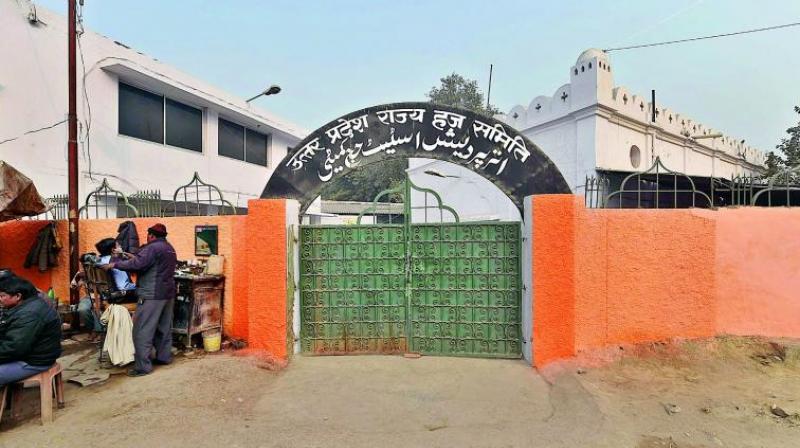Lucknow: It looks that saffron wings are spreading everywhere in UP in the form of saffronisation of every government institution. Even the educational institutions are tiding towards saffronisation which is visible in the form of propagation of distorted history and conducting quiz competitions solely based on the sangh parivar’s ideology.
According to the news reported in the Hindustan Times, in December, a singing competition has been conducted in the schools across the state on the Shrimad Bhagavad Gita Rahasya. In that competition, a boy from Gorakhpur, the home constituency of chief minister Yogi Adityanath, was declared the winner. The second winner was Aliya Khan from Meerut.
The first winner was given the cash prize of Rs 50,000 and the second winner carried home a cash prize of Rs 25,000.
Srimad Bhagavad Gita Rahasya is the seminal work of freedom fighter Lokmanya Bal Gangadhar Tilak.
Historian Rana Safvi says that “Holding quizzes is a good initiative, and all schools should participate. They should be inclusive and must not dwell solely on the Bhagavad Gita,” she further adds that “We should definitely organise historical quizzes in schools, but they should represent our glorious history, not a blinkered view.”
The UP government also asked the state universities to creat a chair in the name of Deendayal Upadhaya, the leader of Bharatiya Jan Sangh, the predecessor of the BJP.
Sohail Hashmi , a Filmmaker-writer, criticizes the government’s move and said that “It is sad the government is establishing a chair to promote its ideologue at a time when scholarships for poor students are being cut. Why couldn’t they create a chair in the name of Nobel Prize-winning economist Amartya Sen or Homi Jehangir Bhabha?”
The sangh ideology is trying to distort history by portraying Mughal emperors Babur and Aurangzeb as foreign plunderers. This means that students will no longer read the positive contributions of Mughal emperors and instead cultivate a mindset of negative opinions on the rulers who made India their home and successfully ruled for more than 300 years.
Historians also say that distorting history in text book of the state boards will lead to difference in the history studied by students. This is because students from other boards will be reading different history from that of read by students belonging to state board. This can possibly have the effect of parents from elite and upper-middle class will send their children to the schools of other boards.

